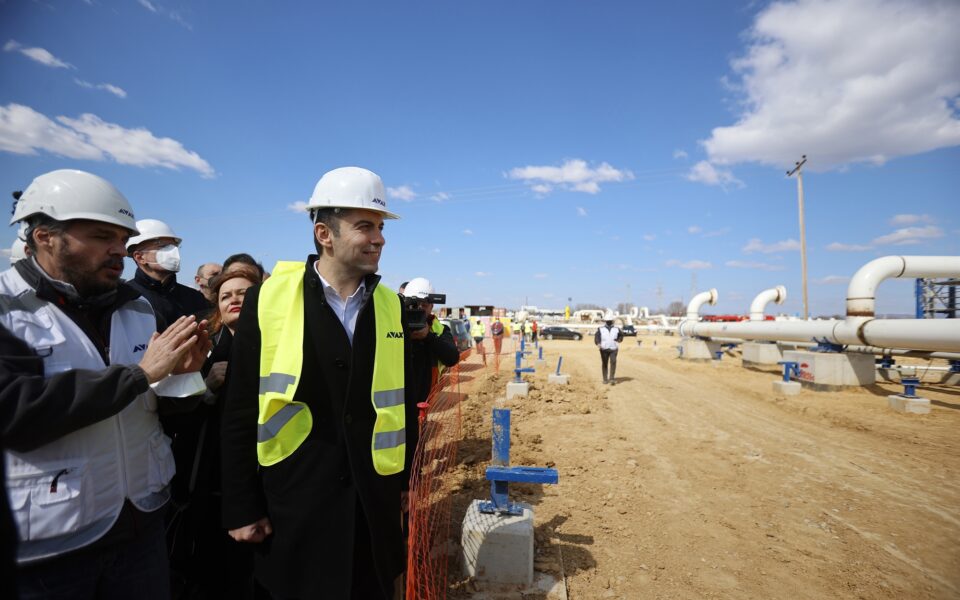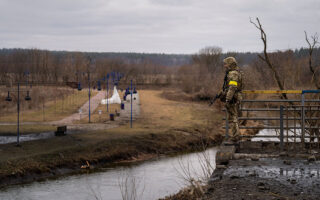A key link in the energy chain

Bulgarian Prime Minister Kiril Petkov appeared anxious during an inspection with Greek Energy Minister Konstantinos Skrekas at the construction site of the Greek section of the Interconnector Greece-Bulgaria pipeline in Komotini, northern Greece, on Monday. Premier Kyriakos Mitsotakis had been due to accompany his Bulgarian counterpart to the site but was unable to as he remained in isolation after testing positive for Covid-19. During his visit, Petkov did not fail to criticize Greece for the delays in the completion of the project within its territory.
“I am angry that this winter the price of gas was so high because the project was not completed and because someone had given up cheaper gas,” he told Bulgarian media, although he did express hope that if the interconnector is completed by the end of June – as Greece has promised – Azeri gas will be able to start flowing in September.
The Bulgarian prime minister was right to be indignant. If the Greek side had not delayed the construction of its section, his country would have negotiated differently with Gazprom, since it would have received Azeri gas through the IBG, and would not have been so heavily reliant on the Russians.
Now that Europe is accelerating its energy independence from Russia, Greece will be called upon to play the role of gateway for natural gas from alternative sources to countries on its northern borders and further afield.
Now that Europe is accelerating its energy independence from Russia, Greece will be called upon to play the role of gateway for natural gas from alternative sources to countries on its northern borders and further afield
Through Interconnector Greece-Bulgaria at Komotini, where the Azeri gas will intersect with the Trans Adriatic Pipeline (TAP), together with the shale gas that will enter the pipeline outside Alexandroupoli, it will be directed into the Bulgarian network and from there it will flow to Romania, Slovakia, Hungary, and perhaps even Ukraine. Outside Thessaloniki, another pipeline under construction will also transport gas from TAP to North Macedonia – which is now completely energy dependent on Russia – with the prospect of reaching Kosovo or Serbia.
The energy situation in Europe is set to spur big changes in Greece, something that will also have a strong bearing on Balkan countries.
With the interconnecting pipelines, the ports on the coasts of northern Greece, the Floating Storage Regasification Units (FSRU) off Alexandroupoli, and the TAP pipeline, the country is emerging as a strong energy hub in the Balkans and beyond.
This represents a unique opportunity for Greece to return to the Balkans, from where it has been largely absent in recent years. And it should not be wasted with infrastructure delays (IGB) and obsessive ideologies (over North Macedonia, Kosovo).





